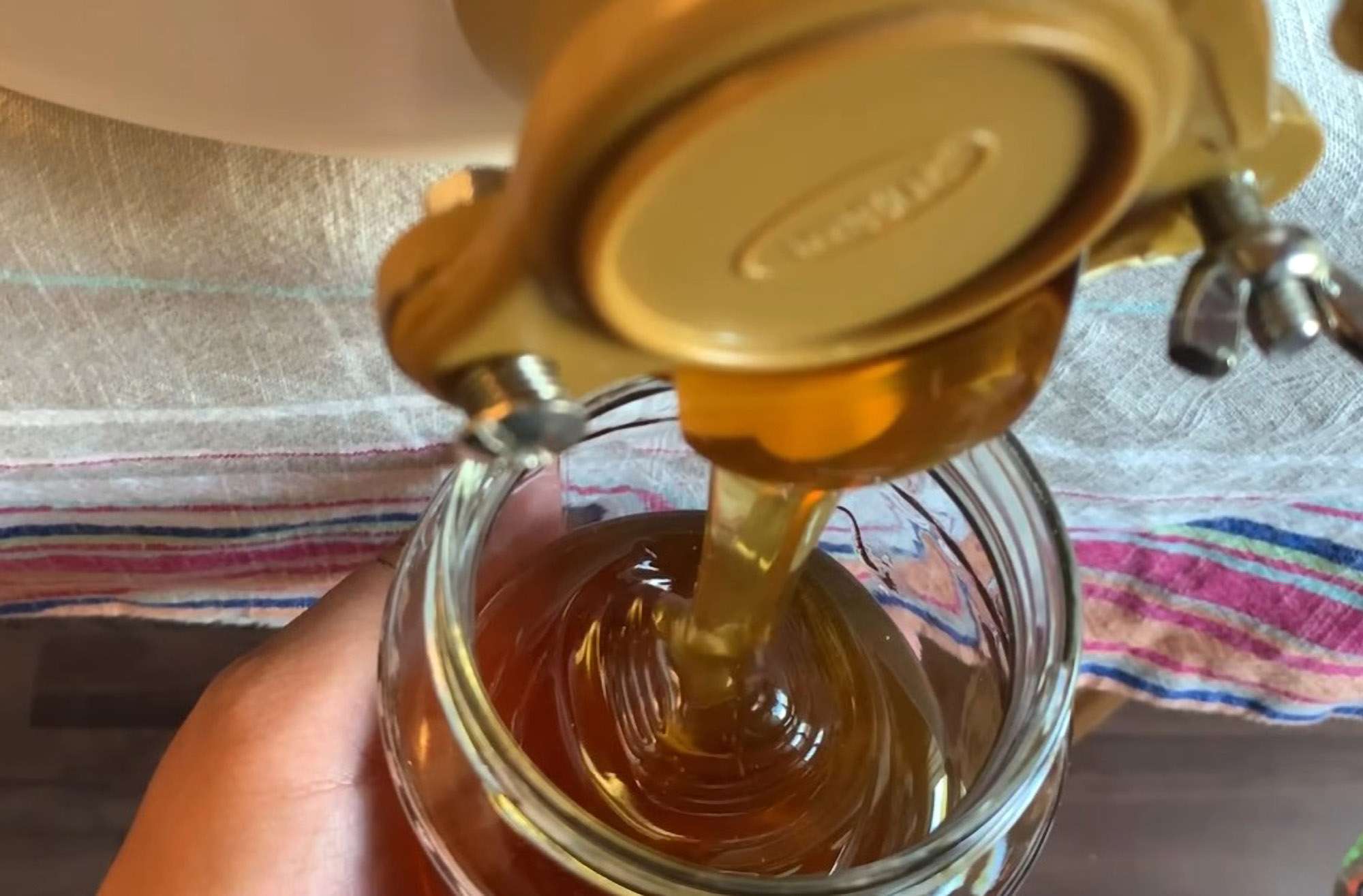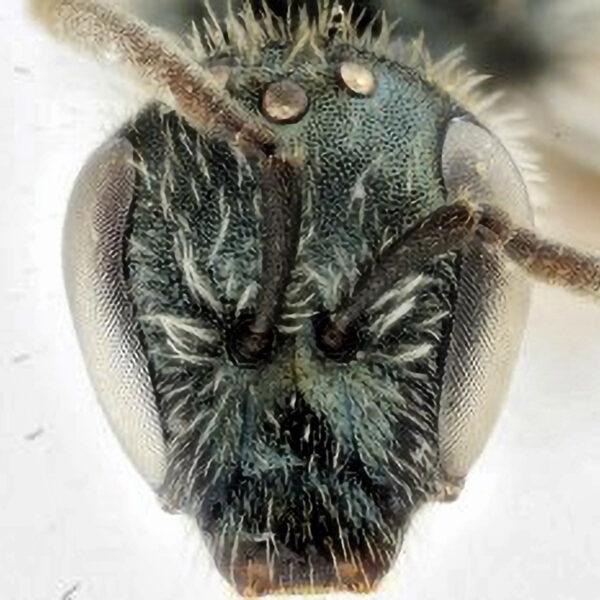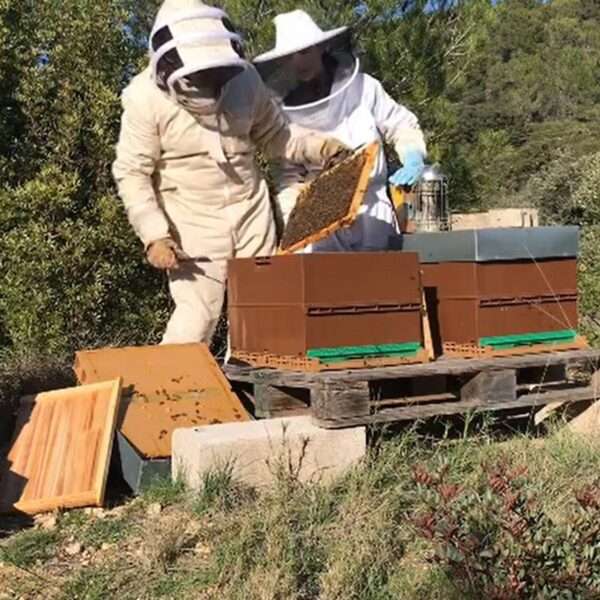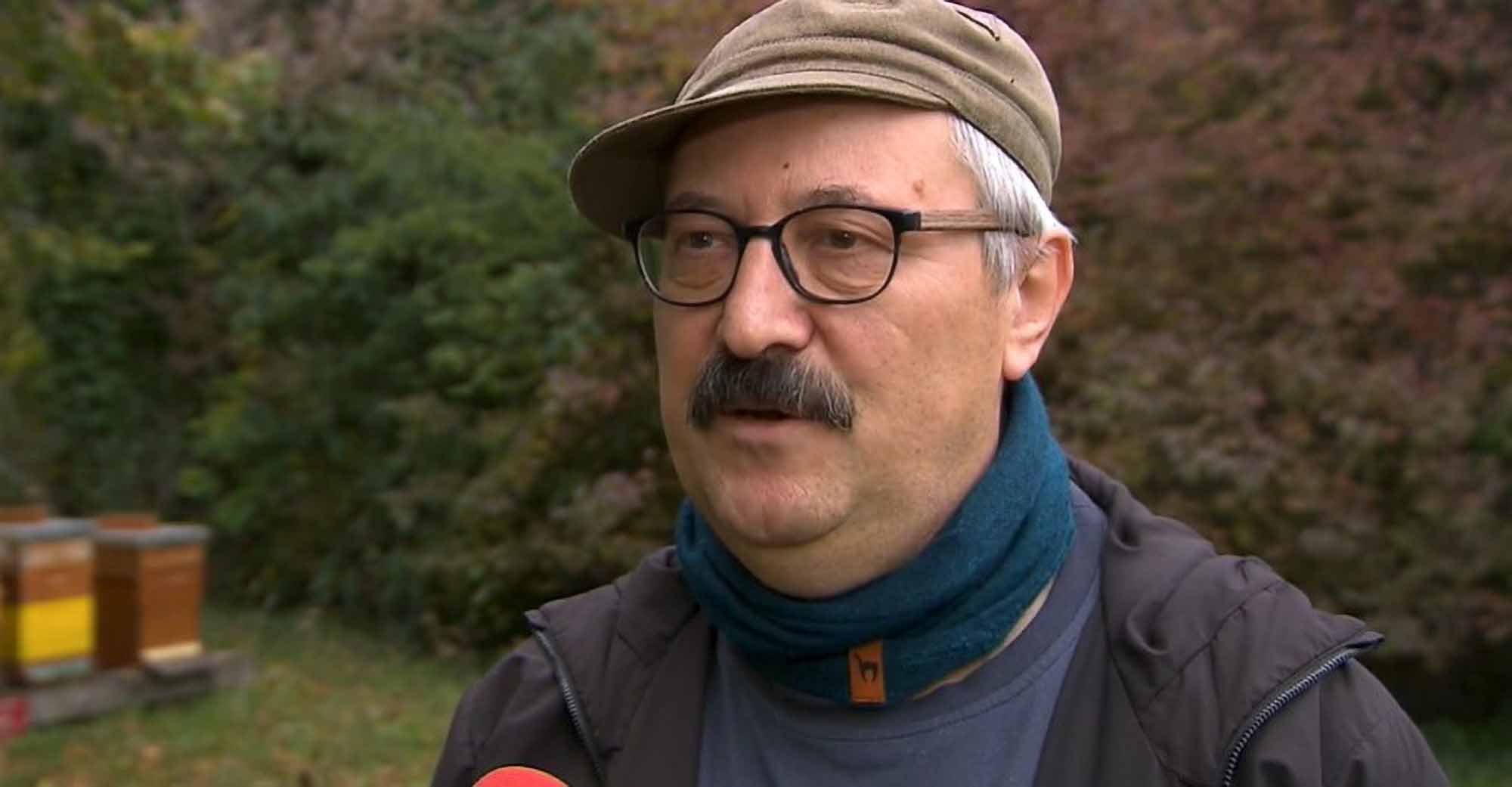An insect expert has underlined the significance of information about potential sightings of a feared invasive species provided by residents.
There have been four confirmed spottings of the Asian hornet (Vespa velutina) in Hamburg so far this year. The insect, which originates from Southeast Asia poses a big risk to honeybees.
Oliver Wieckhorst is closely monitoring the situation for NABU, a German organisation focusing on the protection of the environment.
Oliver explained: “Notifications from inhabitants are very important as they enable us to discover nests.“
Speaking to broadcaster NDR, he added: “Asian hornet nests can produce up to 350 queens. They subsequently create nests in the following year.”

Reflecting on the most recent sightings of nests built by the notorious species in the northern German city, Oliver said: “We think that these two nests are not the only currently existing ones. We assume that there are more unreported animals.”
Speaking about the higher Asian hornet numbers in southern Germany, Hamburg Beekeepers Union President Edda Gebel admitted: “I’m deeply concerned by the high number of appearances.”
She warned: “If we don’t find workable solutions in cooperation with our partners, my perspective on the next five to 10 years is dominated by worries.”
Anyone seeing what could be an Asian hornet has been advised not to kill the insect as it could in fact be a protected native hornet or wasp. Instead, citizens should inform their local environment authority.
Asian hornets presumably arrived in Europe in cargo from China in 2004 and have kept spreading across the continent ever since. One colony can eat up to 11 kilogrammes of different insects per year, according to experts.
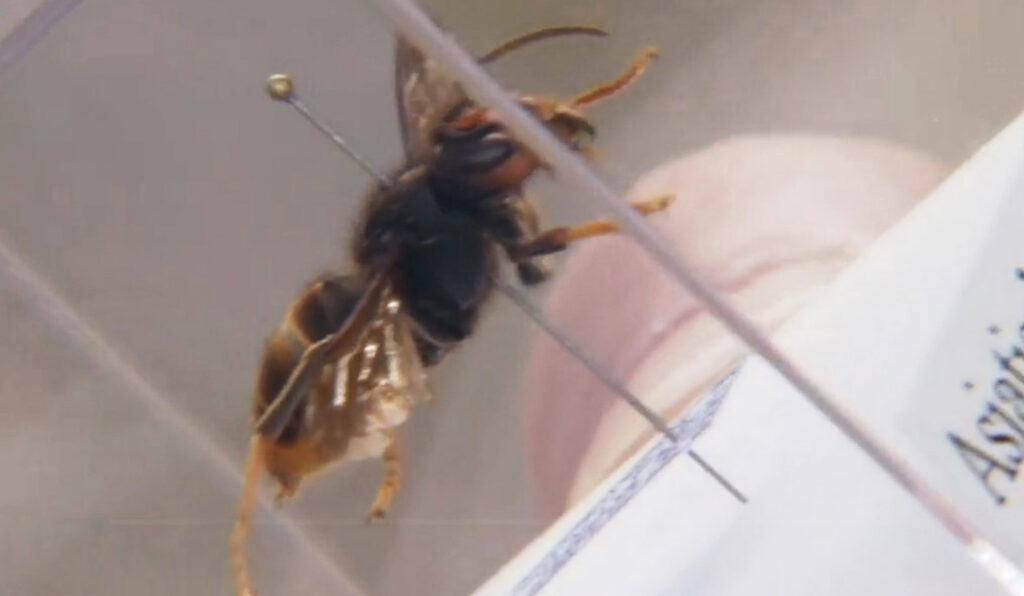
Domesticated honeybees tend to stay inside their hive whenever an Asian hornet comes into view as they cannot defend themselves. Apiarists and farmers fear that the ongoing proliferation of the invasive species, which must not be kept and bred under EU law, could lead to a decrease in pollination.



